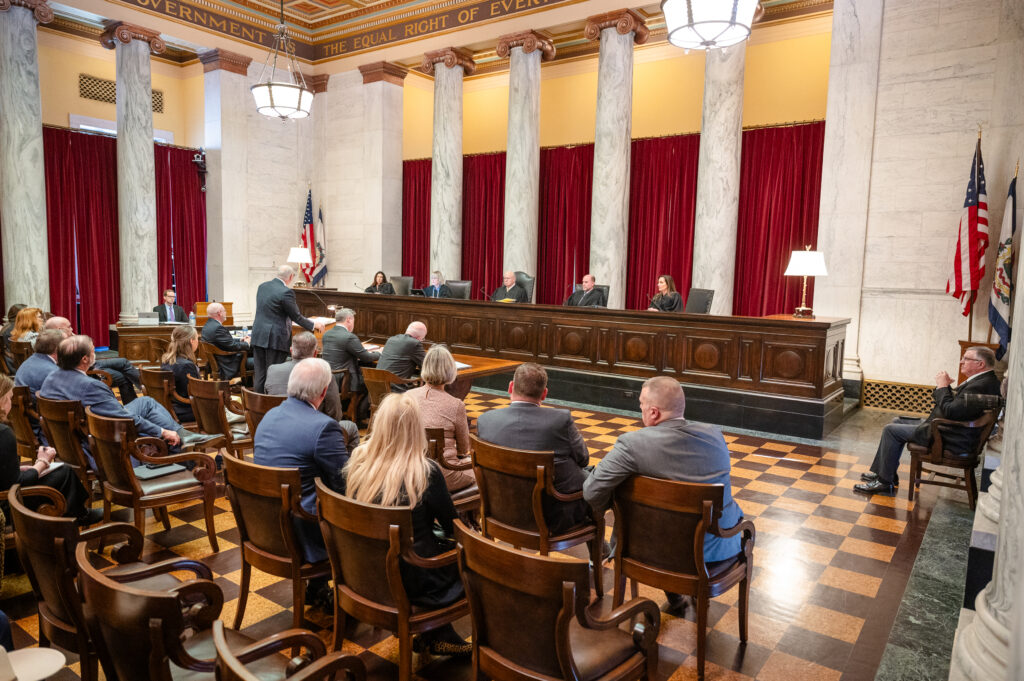This is an evolving story and may be updated.
The Supreme Court of Appeals of West Virginia has declined to answer whether the opioid epidemic in Cabell County and the city of Huntington qualifies as a public nuisance.
The federal Fourth Circuit Court of Appeals asked the state supreme court to define a public nuisance under West Virginia law in March of 2024 following an appeal.
That was the standard under which the city and county sued AmeriSource Bergen, Cardinal Health and McKesson Corporation as distributors of opioid pain medications.
The determination to not decide the question was issued by Justice Haley Bunn. In the majority opinion, she wrote “…we respectfully decline to answer the Fourth Circuit’s certified question. Still, our declination does not preclude future consideration of this question, and does not affect whether we accept or decline answering future questions…”
Justice Beth Walker agreed with the majority. She said in a separate opinion that “In short, we do not have the integral facts before us to guide a reasoned analysis, placing us in the precarious position of venturing a guess as to what the facts might ultimately be to then reach a conclusion that, as a matter of law, public nuisance does or does not extend to them.”
Chief Justice Bill Wooton and Judge Tera Salango, sitting in on temporary assignment, both dissented. Wooton noted it was the fourth time the high court postponed making a decision.
“The petitioners are entitled to an answer to the question posed by the Fourth Circuit, and the respondents’ argument to the contrary can fairly be deemed cursory at best; it consists of one brief paragraph and a footnote. Unfortunately, the majority has come to the rescue by making the argument the respondents could have made, but did not. I respectfully dissent to the Court’s decision to postpone, for the fourth time, a decision on this issue of critical importance. I am authorized to state that Judge Salango joins in this dissenting opinion.”
The rest of the state went together in a separate trial, making nearly the same argument as the city and county, and were successful. The city and county are not eligible for the state funds and don’t have the resources needed to mitigate the problem. That money is being distributed by the West Virginia First Foundation.
Huntington and Cabell County argued that the excessive distribution of opioids caused significant harm to their communities, including over 700 overdose deaths in Cabell County alone between 2015 and 2020. They are seeking $2.5 billion to abate the crisis and support recovery efforts.
The distributors argue that public nuisance law doesn’t apply to the distribution of legal products.
Now that the state Supreme Court has declined to answer the certified question from the Fourth Circuit, it is unclear what will happen to the lawsuit. Lawyers for the city and county indicate the case returns to the Fourth Circuit to decide on the appeal without the determination from the state.























